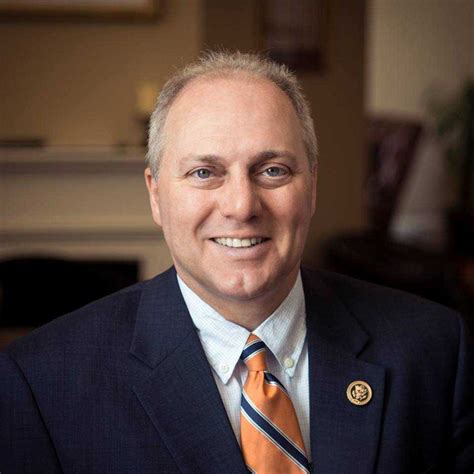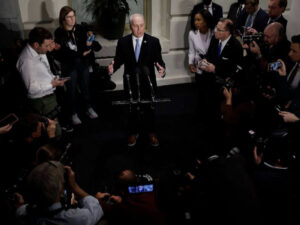In a surprising turn of events, Representative Steve Scalise of Louisiana has officially withdrawn from the race to become the next Speaker of the House, citing a lack of support from the House Republican conference. This decision has sent ripples through the GOP and raised questions about the party’s path forward.
Scalise’s announcement came following a closed-door ballot among House Republicans, where he was nominated as a candidate for the speakership. However, the bulk of GOP House members threw their support behind his challenger, Representative Jim Jordan of Ohio. Notably, former President Donald Trump had also endorsed Jordan, predicting that he would be a “GREAT Speaker of the House.”
The House leadership turmoil began when former Speaker Kevin McCarthy of California was removed from his position on October 3. This move was driven by Republican Representative Matt Gaetz of Florida, who spearheaded the effort to oust McCarthy.

Scalise, who has represented Louisiana in the House since 2008, faced additional challenges this year when he was diagnosed with blood cancer. Some members of the GOP, including Representative Marjorie Taylor Greene of Georgia, expressed concerns about Scalise’s health, with Greene advocating for him to focus on his cancer battle rather than seeking the speakership.
Even former President Trump voiced his apprehensions about Scalise’s health in relation to taking on the role of speaker. In an interview, Trump remarked, “Steve is a man that is in serious trouble, from the standpoint of his cancer.”
During a press conference explaining his decision, Scalise hinted at the internal divisions within the Republican Party. He emphasized the need for unity and a functional House of Representatives, but he acknowledged that “not everybody is there, and there are still schisms that have to get resolved.”
While Scalise declined to announce his support for Jordan or any other candidate, he stressed his commitment to seeing the Speaker position filled expeditiously. The withdrawal of a prominent figure like Scalise from the race raises questions about the GOP’s ability to come together and select its next leader. As the Republican Party navigates these challenges, the future of House leadership remains uncertain.



